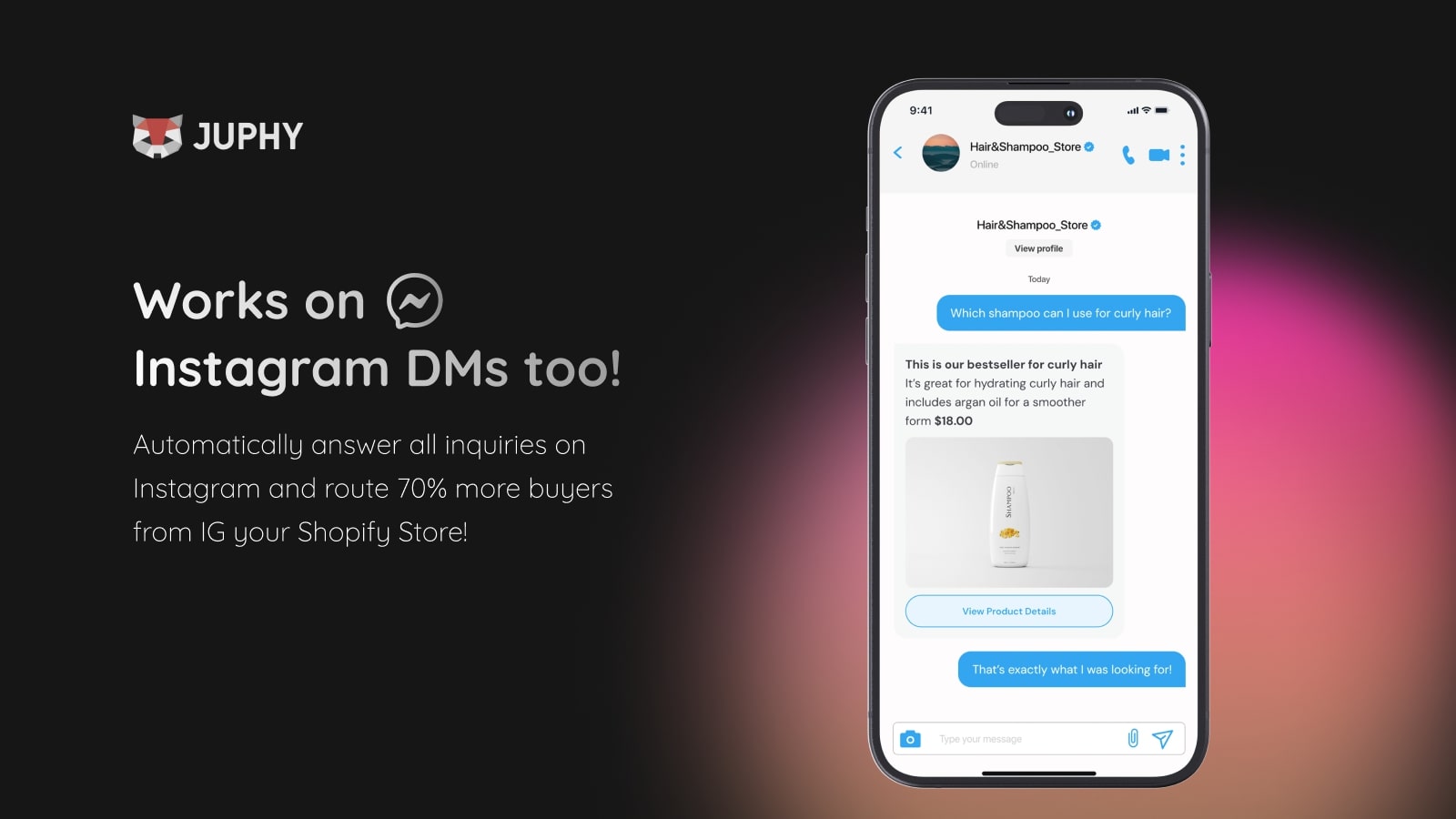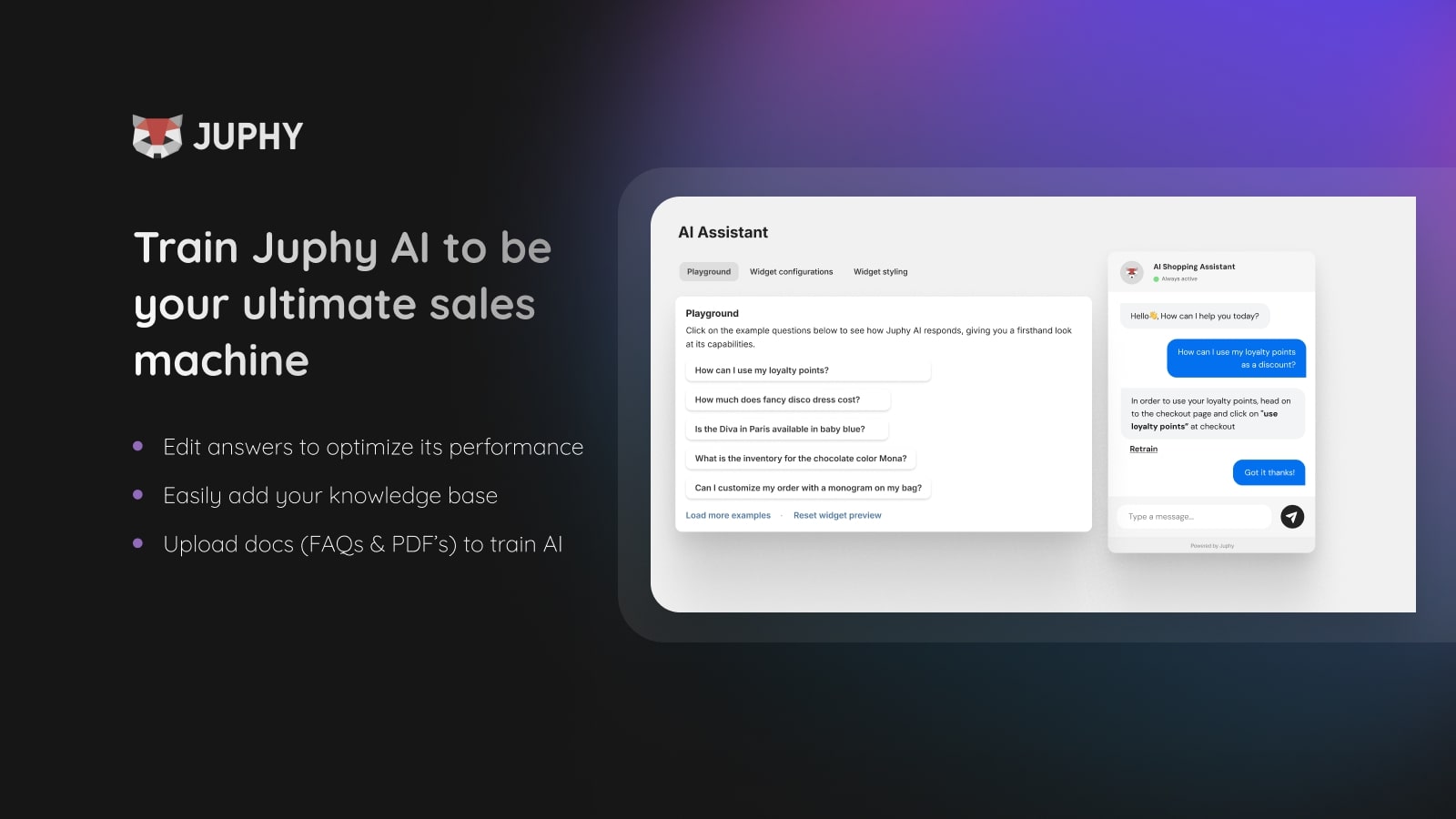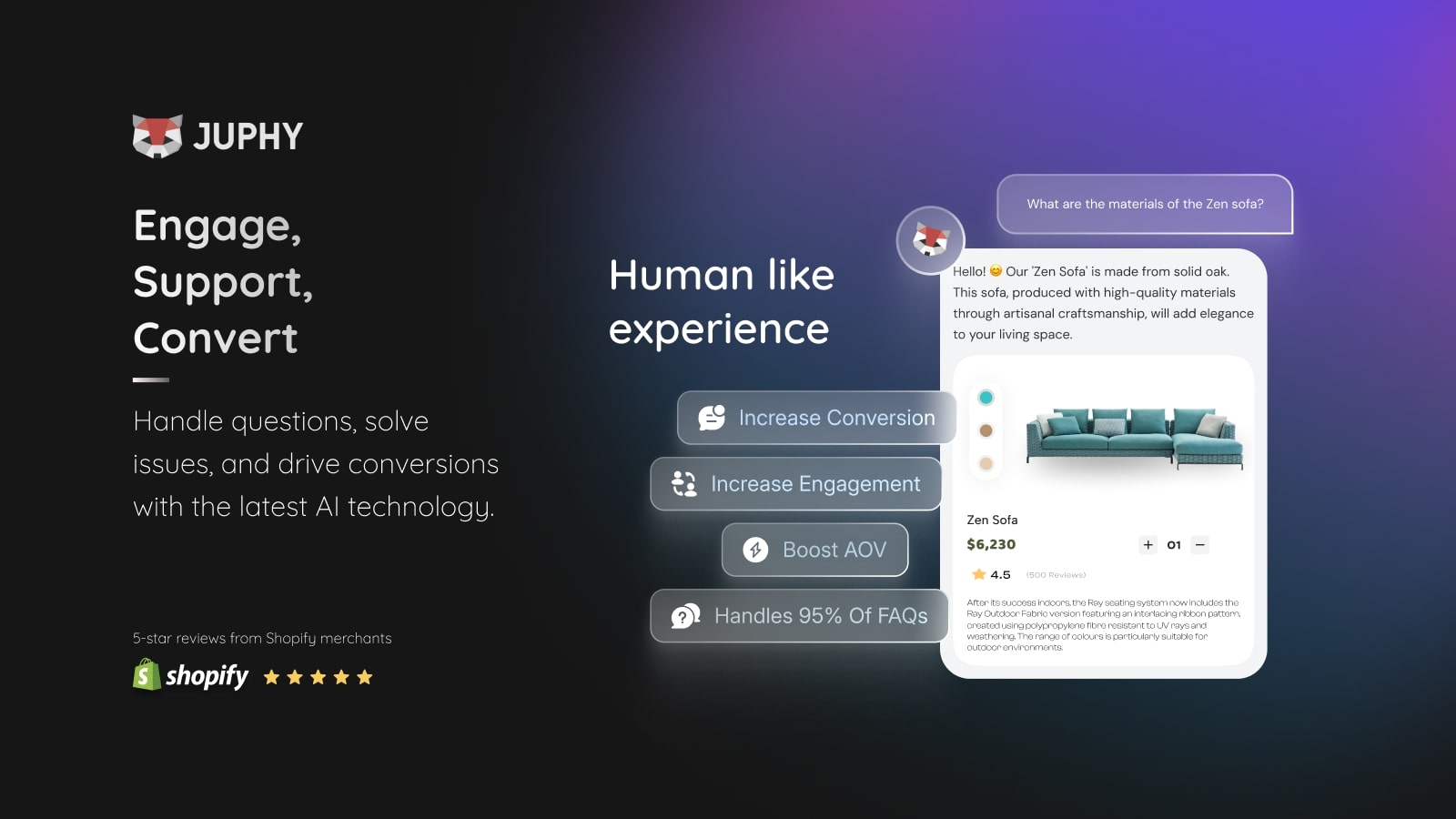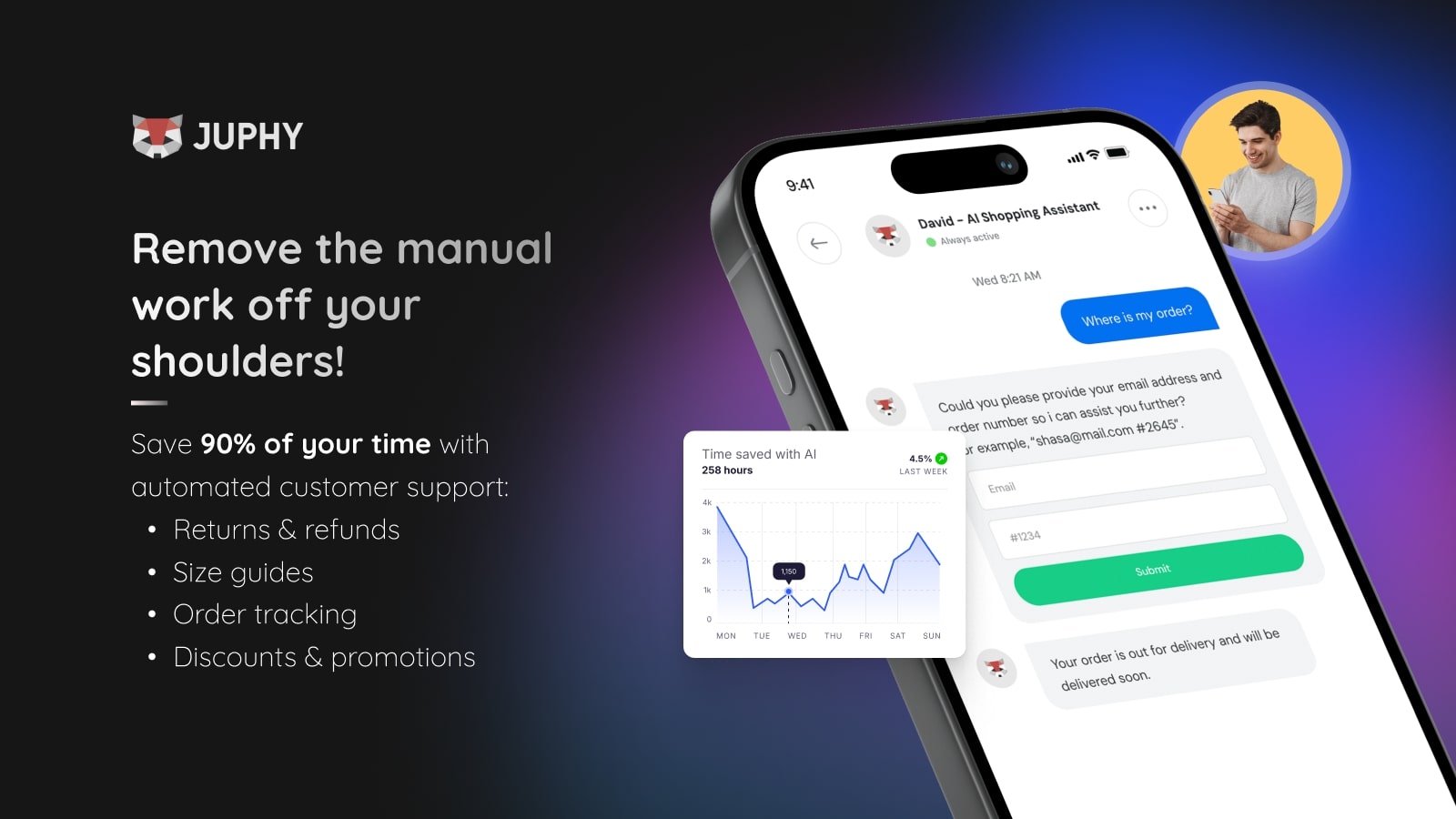AI Chatbots for Home and Garden: Handling Complex Product Queries
Zeynep Avan
The home and garden industry is one of the most dominant sectors in e-commerce, with a wide range of products. From large outdoor furniture to delicate plants and tools, the nature of these products often leads to numerous questions from potential customers.
Ensuring all these queries are addressed is important for driving purchase decisions and enhancing customer satisfaction.
Given the complexity and diversity of home and garden products, customers frequently need detailed information before making a purchase.
This includes understanding product specifications, comparing categories, and receiving personalized recommendations. The challenge for online sellers is to provide this level of support consistently and efficiently.
Enter AI chatbots, which change the way online sellers interact with customers. AI chatbots can understand and respond to complex queries in a natural and conversational manner.
- They integrate comprehensive product knowledge
- They offer personalized assistance
- They support multiple communication channels
AI chatbots, like Juphy’s AI Agent, can scan all available product information on platforms like Shopify and handle complex product inquiries.
Yes, WhatsApp contact icons have officially been replaced by AI chatbots – get used to it.
Let’s start with the problems within this process and close with possible solutions (Hi, Juphy AI) in this article.

The Growing Importance of AI in E-Commerce
We are all now familiar with the growth and involvement of AI in e-commerce operations from website development to sales and support.
AI chatbots, in particular, are transforming the way businesses interact with their customers, offering instant support and personalized recommendations.
In the home and garden sector, where product queries can be particularly complex, AI chatbots are proving to be invaluable tools.
Enhancing Customer Experience
Customer experience is the #1 priority for online sellers and AI involvement in e-commerce shows itself in this article particularly.
For example, a gardening supplies store can use AI chatbots to offer seasonal planting guides, tips for pest control, and advice on maintaining different types of plants.
This not only enriches the shopping experience but also ensures customers’ success with their purchases.
Meeting the Demands of Modern Shoppers
Modern shoppers expect quick, accurate, and personalized responses to their queries.
AI chatbots can meet these demands by providing instant support and personalized product recommendations.
This level of service not only enhances customer satisfaction but also encourages repeat business and positive word-of-mouth.
Challenges in Home and Garden Product Queries
The home and garden sector presents unique challenges due to the complexity and variety of products.
Complexity of Product Specifications
Home and garden products often come with detailed specifications that can be difficult for customers to navigate.
Understanding these specifications is crucial for making informed purchase decisions.
For example, if a customer is looking for a sofa, it comes with a multitude of specifications that need to be considered.
- Model
- Material
- Quantity
- Diameter
- Product Details
- Promotions
- Shipping and Returns
- Additional Features
The extensive details provided for such a product can be overwhelming for customers. They might have specific questions, such as whether the “Performance Brilliant White” material is stain-resistant or how the “360° swivel base” functions in a confined space.
Without effective assistance, customers may struggle to find the answers they need, leading to frustration and potential loss of sales.
Unfortunately, many traditional chatbots, as in the example, are not equipped to handle this level of detailed inquiry. They may provide generic responses or fail to understand the specific nuances of a customer’s question. This inadequacy can result in a poor customer experience and missed opportunities for the retailer.
By leveraging advanced AI chatbots with capabilities such as Natural Language Processing (NLP) and comprehensive product knowledge integration, these challenges can be mitigated.
Variety of Product Categories
From gardening tools to home décor, the huge variety of product categories in the home and garden sector can overwhelm shoppers. Each category contains numerous subcategories, adding to the complexity of the shopping experience.
Providing accurate information and recommendations across a wide range of products is crucial for a satisfying shopping experience.
For example, if a customer is looking for products for their garden, they will encounter a multitude of categories such as:
- Garden Furniture
- Gazebos, Parasols & Awnings
- Barbecues & Accessories
- Fire Pits, Chimineas & Outdoor Heating
- Outdoor Lighting
- Outdoor Dining
- Pools & Hot Tubs
- Garden Structures
- Outdoor Living Collections
- Log Cabins
- Garden Water Features & Ponds
- Sheds & Garden Structures
- Fencing & Landscaping
- Garden Machinery & Power Tools
- Seeds, Bulbs & Propagation
- Outdoor Plants & Trees
- Pots, Planters & Flower Beds
- Garden Ornaments & Decoration
- Garden Tools & Equipment
- Wild Bird Care
- Hoses, Irrigation & Watering
- Pest Control & Weed Killer
Each of these categories further splits into specific items, creating a complex web of options. Customers may find it challenging to navigate this extensive selection and identify the products that best meet their needs.
In the example provided, the company does not even have an effective chatbot. Instead, they rely on a messaging service that is only available during specific hours (9 am – 5:45 pm, 7 days a week). Outside these hours, customers are directed to use an online web form, with a promise that the team will respond later.
This approach is inadequate for modern e-commerce demands, where customers expect immediate assistance and support at any time of the day.
Need for Personalized Recommendations
Personalized recommendations are also one side where some problems might occur during the shopping experience. They are must-haves in helping customers find the right products for their specific needs.
However, many online stores still lack the capability to provide personalized recommendations, which can significantly impact customer satisfaction and sales.
Personal suggestions based on customer preferences, questions and purchase history enhance the shopping experience and increase the likelihood of a purchase.
For instance, if a customer is looking for a black sideboard with drawers and wants to see all available options, they may encounter significant challenges if the website’s support system is inadequate.
For example, the Cotswold Company showcases a Chester Charcoal Large Sideboard with specifications such as:
- Model: Large Sideboard
- Material: White wax finished quality oak top, includes both oak and metal handles
- Dimensions: Height: 83 cm, Width: 137 cm, Depth: 42 cm
- Price: £599
- Additional Features: 15-year structural guarantee, delivered fully assembled
A customer interested in this sideboard might want to compare it with similar products to make an informed decision.
However, the current chatbot setup is not equipped to provide such personalized recommendations or show similar items. The store uses Zendesk for customer support, which offers only two FAQs and a “Contact Us” form. This basic setup is not suitable for customers looking for personalized product suggestions or comparisons.
As a result, the customer cannot easily find and compare other black sideboards with drawers, which might lead them to abandon their search or purchase.
Key Features of Effective AI Chatbots
To handle complex product queries effectively, AI chatbots need several key features.
Natural Language Processing (NLP)
NLP enables chatbots to understand and respond to customer queries in a natural, conversational manner, providing accurate and relevant information.
Natural Language Processing (NLP) is a foundational technology that enables AI chatbots to understand and respond to customer queries. With NLP, chatbots can interpret the nuances of human language, including slang, colloquialisms, and context, to provide accurate and relevant information.
For instance, if a customer asks, “Can you show me a black sideboard with drawers?” a chatbot equipped with NLP can understand the specifics of the request and provide appropriate product suggestions.
This contrasts with traditional chatbots that might only recognize keywords and provide generic responses. With NLP, AI chatbots can engage in more meaningful interactions, enhancing the overall customer experience.
Examples of NLP in action include:
- Handling Ambiguity: If a customer asks, “Is the material stain-resistant?” the chatbot can understand the context if the customer previously mentioned a specific product like a sofa.
- Recognizing Intent: When a customer states, “I need something for my patio,” the chatbot can infer that the customer is looking for outdoor furniture or decorations and provide relevant options.
- Clarifying Queries: If a customer’s query is vague, the chatbot can ask follow-up questions to better understand their needs, such as “Are you looking for a specific color or style?”
Product Knowledge Integration
Effective AI chatbots integrate comprehensive product knowledge, allowing them to answer detailed questions and provide in-depth information about products.
This capability is crucial in the home and garden sector, where products often come with intricate specifications and features.
For example, if a customer is interested in a Chester Charcoal Large Sideboard, the chatbot can provide detailed information about its dimensions, material, price, and additional features.
The chatbot can also compare it with similar products, helping the customer make an informed decision. This level of detail is particularly important when dealing with high-value items where customers need reassurance about their purchase.
Product knowledge integration also helps in:
- Providing Recommendations: The chatbot can suggest complementary products, such as recommending matching dining chairs for a purchased dining table.
- Answering Specific Queries: If a customer asks about the assembly process or warranty details, the chatbot can provide precise answers based on integrated product data.
- Updating Customers: The chatbot can inform customers about product availability, shipping times, and return policies, ensuring they have all the necessary information before making a purchase.
Personalization Capabilities
Personalization capabilities enable chatbots to offer custom recommendations and support.
By analyzing customer data, such as browsing history, past purchases, and preferences, AI chatbots can customize their responses to individual needs.
For instance, if a customer frequently buys gardening tools, the chatbot can recommend new tools or seasonal plants that match their interest.
Personalization not only improves customer satisfaction but also increases the likelihood of repeat purchases and loyalty.
Examples of personalization include:
- Personalized Product Suggestions: Based on a customer’s browsing history, the chatbot can suggest products that align with their tastes, such as recommending modern furniture for a customer who prefers contemporary styles.
- Exclusive Offers: The chatbot can provide personalized discounts or promotions based on the customer’s purchasing behavior, encouraging them to complete their purchase.
- Follow-Up Support: After purchase, the chatbot can offer tips and advice on product usage or maintenance, such as providing care instructions for a newly bought plant.
Multi-Channel Support
AI chatbots should offer multi-channel support, providing assistance across various platforms such as websites, social media, and mobile apps, ensuring that customers can receive help wherever they are.

For example, a customer browsing a furniture store’s website might have a question about a product’s dimensions. The chatbot can instantly provide the needed information.
Similarly, if a customer is shopping on the store’s mobile app and needs help with order tracking, the chatbot can assist in real time.
Multi-channel support benefits include:
- Consistency Across Platforms: Customers receive the same high level of support whether they are on the website, social media, or mobile app, ensuring a seamless experience.
- 24/7 Availability: Chatbots can provide round-the-clock assistance, answering queries and resolving issues outside regular business hours.
- Integration with Other Services: AI chatbots can connect with other support channels, such as live chat with human agents or email, ensuring that complex issues are escalated appropriately.
How AI Chatbots Handle Complex Product Queries
AI chatbots are equipped with various features to handle complex product queries efficiently.
Detailed Product Information
It is most important for a chatbot to be able to understand all product information details and use them in the right context. Otherwise, they wouldn’t be different from the traditional chatbots.
AI chatbots can scan all the product information available on platforms, providing detailed and accurate product descriptions to customers.
This ensures that customers have all the information they need to make informed decisions.

Juphy, which specializes in scanning all product information details, especially on e-commerce platforms such as Shopify, has an advantage in this area.
For example, when a customer is looking for a specific product such as a black sideboard with drawers, Juphy’s AI Agent can provide comprehensive details about various options:
Juphy can provide comprehensive details about various options, including:
- Dimensions: Providing precise measurements such as height, width, and depth to ensure the product fits the customer’s space.
- Material: Detailing the type of materials used, such as wood type or finish, which helps customers understand the product’s quality and durability.
- Price: Including current pricing, discounts, and promotions to help customers make cost-effective decisions.
- Availability: Showing stock status and estimated delivery times to inform customers about when they can expect their purchase.
- Customer Reviews: Offering insights from other buyers to help customers gauge the product’s reliability and quality.
This reduces the need for manual search and helps customers find what they need quickly and efficiently.
Interactive Troubleshooting
AI chatbots can guide customers through troubleshooting steps for common issues, helping them resolve problems without needing to contact customer support.
This interactive support minimizes frustration and enhances the overall user experience by providing immediate assistance.
- Assembly Assistance: Offering step-by-step instructions and video tutorials to help customers assemble products like furniture or garden structures.
- Technical Support: Guiding customers through the setup of electronic or technical products, such as outdoor lighting systems or irrigation controls.
- Maintenance Tips: Providing advice on how to care for and maintain products, such as cleaning in
Dynamic FAQ Responses
These chatbots can generate dynamic responses to frequently asked questions, providing instant answers to common queries and reducing the workload on customer support teams.
By constantly learning from customer interactions, Juphy AI can improve its responses over time, ensuring that customers receive accurate and helpful information.
- Shipping Policies: Quickly providing information on shipping options, costs, and delivery times.
- Return Procedures: Explaining the steps for returning products, including any conditions or time frames.
- Product Specifications: Answering detailed questions about product features and specifications, such as materials, dimensions, and functionality.
- Warranty Information: Offering clear details on warranty coverage and how to make a warranty claim.
Juphy AI: Elevating Customer Support in Home and Garden
Happily, ‘Built for Shopify’ badged Juphy is here to solve all possible problems that might occur during the customer experience in home and garden e-commerce websites. Juphy’s AI Agent provides comprehensive solutions, including personal shopping assistance, real-time support, human-like conversations, and managing order tracking.
Personalized Shopping Assistance
Juphy AI provides personalized shopping assistance, helping customers find products that meet their specific needs and preferences.

It learns from historical preferences, answers, purchases and any kind of interactions, and uses this learning to assist customers through their shopping journey.
Let me clarify: Juphy AI can analyze customer preferences, browsing history, and specific queries to offer personalized product recommendations. For instance, Juphy’s AI Agent can assist by:
- Scanning the entire product catalogue to identify similar items
- Providing personalized suggestions based on the customer’s specific needs and preferences
- Enabling dynamic and interactive browsing to help customers find and compare products effortlessly
Think about the challenges and solutions we’ve already discussed in the home and garden e-commerce sector. A customer might frequently browse for modern garden furniture. Juphy AI can suggest new arrivals or complementary items, such as a matching coffee table or decorative planters.
Real-Time Customer Support
Juphy AI offers real-time customer support, ensuring that customers receive instant help and information whenever they need it.
This 24/7 availability means that customers can get assistance outside regular business hours, enhancing their shopping experience and increasing the likelihood of completing a purchase.
For example, a customer might have a question about the delivery time for a recently ordered garden bench at midnight. Juphy AI can provide immediate information on the order status and expected delivery date.
Human-Like Interactions with ChatGPT
By using ChatGPT, Juphy’s AI Agent can engage in human-like interactions, making the customer support experience more natural and enjoyable.
This feature allows the chatbot to understand and respond to customer emotions, queries, and preferences in a conversational manner, bridging the gap between automated responses and human empathy.
A customer might be expressing frustration about a delayed shipment. Juphy AI, powered by ChatGPT, can respond empathetically, providing reassurance and updates in a manner that feels personalized and caring.
Order Tracking and Management
Juphy AI also assists with order tracking and management, providing customers with up-to-date information about their purchases.
Customers can easily track their orders, check delivery statuses, and receive notifications about any changes, ensuring transparency and building trust in the e-commerce process.

A customer might want to know the status of their garden shed delivery. Juphy AI can instantly provide tracking information, delivery timelines, and any relevant updates.
Conclusion
AI chatbots are transforming the home and garden e-commerce sector by handling complex product queries, enhancing customer experiences, and meeting the demands of modern shoppers.
With advanced features like NLP, product knowledge integration, personalization capabilities, and multi-channel support, AI chatbots like Juphy AI are setting new standards for customer support.

Key Takeaways
- AI chatbots are essential for handling complex product queries in the home and garden sectors.
- Enhancing customer experience and meeting modern shoppers’ demands are important for success.
- Effective AI chatbots need NLP, product knowledge integration, personalization, and multi-channel support.
- Juphy AI offers personalized shopping assistance, real-time support, human-like interactions, and order tracking, making it a valuable tool for home and garden businesses.
- Hire Juphy’s AI Agent today and see how your conversation rates are going up!
